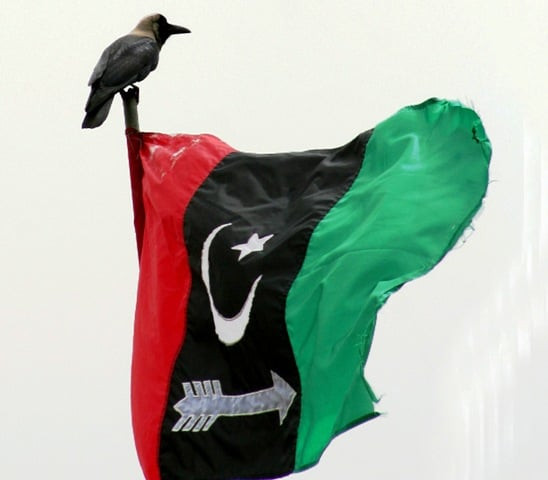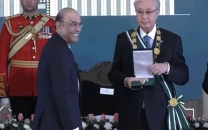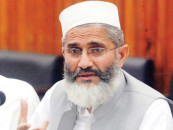Erstwhile allies: PPP, MQM gear up for Sindh Assembly showdown
PPP decides to submit legislation in the Sindh Assembly to revive the 1979 local government system.

In what appears to be an abandonment of the possibility of compromise, the ruling Pakistan Peoples Party (PPP) on Monday decided to submit legislation in the Sindh Assembly to revive the 1979 local government system – also referred to as the ‘commissionerate system’ – and the 1861 Police Act during the upcoming session of the provincial legislature on Wednesday.
The decision was taken at a meeting of the party’s parliamentary committee, held under the chairmanship of Pir Mazharul Haq at the Sindh Chief Minister House in Karachi. The meeting was attended by as many 76 provincial lawmakers and senior party members.
Sources told The Express Tribune that the PPP would take advantage of its majority in the Sindh Assembly to pass all three ordinances that had been passed by the acting Sindh governor, Nisar Ahmed Khuhro, on July 9. The sources added that the party would also present legislation that it had ‘held back on’ when it was allied with the Muttahida Qaumi Movement (MQM), including bills to revive the Malir and Lyari Development Authorities, which the MQM opposes.
A majority of the legislators present at the meeting wanted the 1979 local government system back without any amendments, said sources familiar with the discussions, apparently debunking reports that the PPP would consider amendments proposed by erstwhile allies, the MQM.
“There was a one point agenda: the upcoming legislation,” said one of the MPAs present at the meeting.
The next Sindh Assembly session, scheduled for Wednesday, had been requisitioned by the MQM members of the legislature.
Sources said that the MQM’s provincial legislators would meet at the party’s headquarters in Karachi to finalise a strategy on Tuesday (today) ahead of the Wednesday session of the Sindh Assembly. MPAs from the MQM have submitted five adjournment motions on Monday for the Sindh Assembly session to be held on July 13, in what appears to be an opening move towards a showdown in the legislature on Wednesday.
Meanwhile, sources privy to the meeting told The Express Tribune that Pir Mazhar, the PPP parliamentary leader in the Sindh Assembly, said that President Asif Ali Zardari’s policy of trying to pacify the MQM was over. “Enough is enough,” he is reported to have said.
Pir Mazhar’s rhetoric stands in sharp contrast to statements made by the new Sindh home minister, Manzoor Wasan, who said that he “dreamed of the MQM coming back to join the government.”
“We are not in a rush to accept the resignations of our friends [in the MQM] and I hope they will come to fold,” he said, referring to the fact that the government has still not accepted the resignations of the MQM members of the Sindh cabinet, which were submitted more than two weeks ago, on June 27.
Wasan’s sentiments had been echoed earlier in the day by Federal Interior Minister Rehman Malik, who also claimed the government was willing to work with the MQM.
“Our doors are always open for Muttahida. We have no reservations, but they are annoyed with us,” he said.
Malik was chairing a meeting at the Sindh Chief Minister’s House of PPP legislators from Karachi, who demanded an audit of the city government and called for an ‘unmasking’ of those responsible for target killing in the financial capital of the country.
PPP internal dissent simmers
The ruling party, meanwhile, appeared to give in to pressure from within its own ranks and did not reintegrate Kamber Shahdadkot district into Larkana, as had been initially planned. Sindh Food Minister Nadir Magsi, whose constituency falls in Shahdadkot, had been opposed to the move.
No decision has also been made so far on changes to the status of Dadu, Tharparkar and Jacobabad districts, all three of which had been bifurcated to give Jamshoro, Umerkot and Kashmore, the status of districts as well.
Published in The Express Tribune, July 12th, 2011.



















COMMENTS
Comments are moderated and generally will be posted if they are on-topic and not abusive.
For more information, please see our Comments FAQ